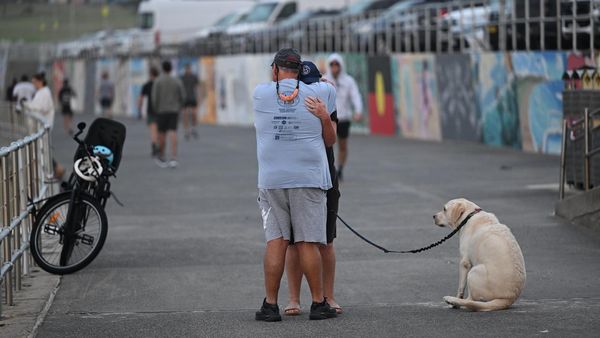
Crying is a natural human response to pain, stress, and even joy, but for many men, shedding tears feels nearly impossible. You’re not alone if you’ve ever wondered why your man won’t cry. This topic matters because emotional expression is vital for mental health, relationships, and personal growth. When men suppress their tears, it can lead to bottled-up emotions, communication breakdowns, and even physical health issues. Understanding the roots of this behavior can help you support the men in your life and foster healthier emotional connections. Let’s explore the six childhood traumas that often explain why your man won’t cry—and what you can do about it.
1. Emotional Neglect in Early Years
Emotional neglect during childhood is one of the most common reasons your man won’t cry. When boys grow up in homes where their feelings are ignored or dismissed, they learn to hide their emotions. Parents or caregivers might have been physically present but emotionally unavailable, leaving a child to navigate big feelings alone. Over time, this teaches boys that their emotions are unimportant or even burdensome. These men may struggle to access or express their feelings as adults, primarily through tears. If you notice your partner shutting down emotionally, gentle encouragement and patience can help him feel safe enough to open up.
2. “Boys Don’t Cry” Social Conditioning
From a young age, many boys hear the message that “boys don’t cry.” This social conditioning is deeply ingrained in our culture and can be a powerful reason why your man won’t cry. Whether it’s from parents, teachers, or peers, boys are often told to “man up” or “be tough” when they feel sad or hurt. This pressure to conform to traditional masculinity can make crying feel like a weakness or even a source of shame. As adults, these men may feel embarrassed or guilty for wanting to cry, so they suppress their tears. Challenging these outdated beliefs together and normalizing emotional expression can help break the cycle.
3. Fear of Rejection or Ridicule
Another reason your man won’t cry may stem from a fear of rejection or ridicule. If a boy is ever mocked or punished for crying, he quickly learns that tears are dangerous. This trauma can come from family members, classmates, or even authority figures. The memory of being laughed at or scolded for showing vulnerability can stick with a person for life. As a result, many men build emotional walls to protect themselves from further hurt. Creating a judgment-free space and validating his feelings can help your partner feel more comfortable expressing his emotions.
4. Witnessing Unhealthy Emotional Models
Children learn how to handle emotions by watching the adults around them. If your man grew up in a home where adults never cried or only expressed anger, he may have internalized the idea that crying is unacceptable. Witnessing parents or role models who suppress their own emotions can send a powerful message: tears are not allowed. This kind of modeling can be especially damaging if combined with other traumas. Encouraging open conversations about feelings and sharing your own experiences with vulnerability can help rewrite these old scripts.
5. Childhood Trauma or Abuse
Experiencing trauma or abuse in childhood is a significant reason why your man won’t cry. Traumatic events—such as physical, emotional, or sexual abuse—can cause children to shut down emotionally as a survival mechanism. Crying might have felt unsafe or even dangerous in these situations. Over time, this emotional numbness can become a default response, making it difficult to access tears even in adulthood. If you suspect past trauma is affecting your partner, consider encouraging him to seek support from a mental health professional.
6. Lack of Emotional Vocabulary
Sometimes, your man won’t cry simply because he never learned how to identify or talk about his feelings. Many boys grow up without the language to describe their emotions, making it hard to process or express them. Without an emotional vocabulary, feelings get bottled up or come out in other ways, like anger or withdrawal. Helping your partner build his emotional vocabulary—by naming feelings together or using resources like emotion wheels—can make it easier for him to connect with his emotions and, eventually, his tears.
Building Emotional Safety Together
Understanding why your man won’t cry is the first step toward building a more emotionally open relationship. These childhood traumas don’t have to define his future. By creating a safe, supportive environment, you can help him unlearn old patterns and embrace vulnerability. Encourage open conversations, model healthy emotional expression, and remind him that tears are a sign of strength, not weakness. Healing takes time, but every step toward emotional honesty brings you closer together.
What experiences have you or your loved ones had with emotional expression? Share your thoughts in the comments below!
Read More
Couples in Conflict: Different Money Priorities
Avoid Money Fights: Plan Finances with Your Spouse
The post When A Man Won’t Cry: These 6 Childhood Traumas Are Why Your Man Won’t Cry appeared first on Clever Dude Personal Finance & Money.







